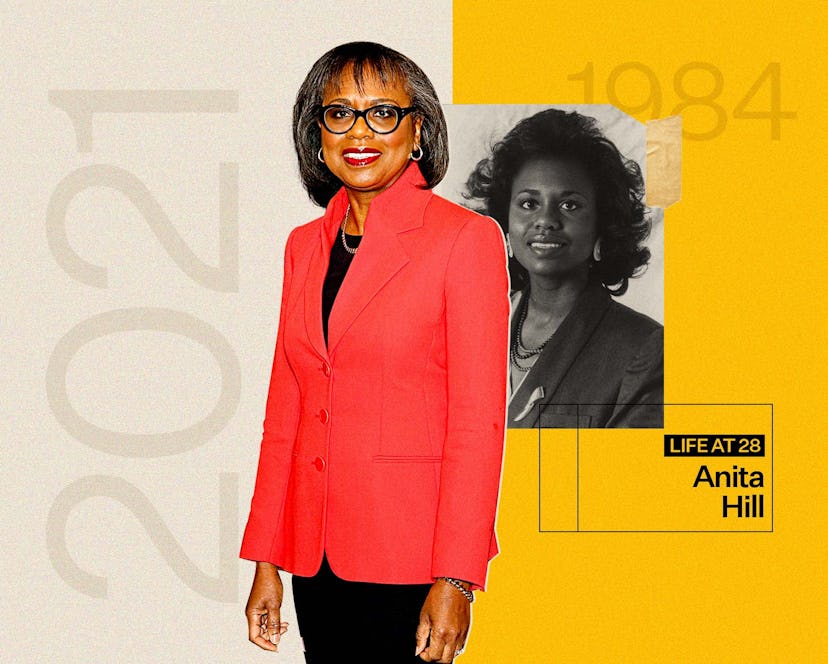28
The author and educator talks about her reasons for leaving Washington, D.C. Hills lifework falls into an entirely different tier of impact.
Yet for the past 30 years, Hill has done just that.
But in 1984, at age 28, Hill was far from a household name.

Shed just left her role working for Thomas at the EEOC and moved to her home state of Oklahoma.
The youngest of 13 siblings, she traded a vibrant Beltway social life for wholesome hangs with family.
I really felt like I settled down.
Not settled, but that I settled down in a positive way, she says.
She was looking and moving forward.
I didnt talk about [Thomas].
That was part of the problem, Hill says.
I wasnt meeting new colleagues and talking about being harassed.
I was not as open.
What did a typical day in your life look like when you were 28?
I was going through a transition.
I was out of Washington, D.C., and glad to be out.
Life was entirely different in Washington, D.C. Oklahoma was a very different experience.
I was back with my family.
I really valued that after being young and single and going out.
I could sit down, concentrate on my work, concentrate on my family.
In a lot of ways, it felt safer.
That was really what I needed.
What do you most remember about your career that year?
I was all in for teaching law.
I really felt like that was what I was going to be doing for the rest of my life.
You know, teaching [has] a steep learning curve.
Initially it was intimidating and baffling.
You decide, “Is this important to me?”
What was the most surprising thing you learned about yourself at 28?
I became more confident.
There were times when I thought, “Is this right?
Am I the person to do this job?”
[But] I had a record of being successful in different spaces.
Did you stay in touch with your D.C. cohort?
That’s one thing I do regret.
People I spent time with every day or week, I just didn’t see.
Many people were very surprised when I left.
A couple of friends [threw] a surprise birthday/going away party.
It was the only time in my life I’ve ever had a surprise party.
You always think, “OK, these are the best people in the world.
I’m going to be with them forever.”
But there was no email.
I mean, we didn’t have cellphones.
So it was entirely different.
But I made new friends in Oklahoma, and spent time with my family.
That made up for some of the loss.
What advice would you give yourself at that age?
To understand that wherever you are, that you’re in it for the long haul.
That things don’t necessarily happen overnight.
And don’t get frustrated if they take longer than you think they’re going to take.
I had siblings who were much older, who had grown up with segregation.
I had grown up in an integrated society.
I thought we were on the verge of changing society.
I thought getting to equality was going to be a sprint.
Over time, I thought, “Well, it’s not a sprint.
It’s actually more of a marathon.
Now, at 65, I think of it as a relay.
With that in mind, how would your younger self view the recent rise inhate crimesandgender violence?
I absolutely think my 28-year-old self would be very distressed and discouraged.
But I also think that there was a fighter in that 28-year-old that continues today.
I say discouraged, but not so much that she would quit.
Maybe she would just fight harder.
What would your 28-year-old self think of who youve become?
She would be completely shocked.
That was not on my radar.
I never thought Id be the subject of a public conversation about sexual harassment.
So she would be [like], “Wow, didn’t see that coming.”
This interview has been edited and condensed for clarity.